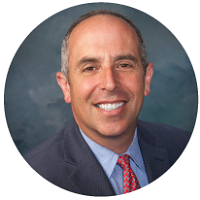 As HCAA Members navigate healthcare’s new normal, HCAA (@HCAAinfo) interviewed a few experts on how they’ve overcome business challenges during the COVID-19 pandemic. This feature highlights Rob Gelb, CEO of Vālenz where he discusses the importance of staying organized and communicative with your team.
As HCAA Members navigate healthcare’s new normal, HCAA (@HCAAinfo) interviewed a few experts on how they’ve overcome business challenges during the COVID-19 pandemic. This feature highlights Rob Gelb, CEO of Vālenz where he discusses the importance of staying organized and communicative with your team.
During the past couple weeks, what were some of your challenges your organization has faced? How did you and your team overcome those challenges?
With very little actionable information about how to move the organization forward in anticipation of the pandemic, we relied on intuition. First and foremost, we focused on doing the right thing to protect employees. On March 6, we created an internal task force. Three days later, we decided to suspend business travel, and by March 13, we transformed the organization into a completely remote workforce. As we made these rapid changes, we communicated frequently and with great transparency. Engaging early and often was key to earning the continued trust of our team.
What are some of the positive things about our new reality?
Our new reality is amorphous – essentially, we are charting a path into the unknown, which is quite a challenge for a data-driven firm like us. Nonetheless, it has been inspiring to see the ways in which our teams (and others across the world) have come together and galvanized around supporting one another through this challenging time. Using technology in new ways to stay productive has also been positive, and for me personally, not traveling has allowed me to get on a more routine schedule in terms of exercise, healthy eating and meaningful time with my wife. I am hopeful we all look for ways to maintain that better balance between our professional and personal lives when tomorrow’s ‘new normal’ takes shape.
How are you keeping yourself busy in your time away from work?
I used to feel like I spent plenty of time away from the office. I traveled 70 percent of my workdays, working in offices, hotels and on planes. Now that I’m working in one place, especially in a home office, work feels ever-present. I have to be disciplined to make time for myself and walk away from work. I’m spending more time with my family than I ever have. I’ve set routines for workouts, grocery shopping, cooking and other little activities I used to take for granted on the priority scale.
Do you have any tips or tricks for creating an ideal home office?
While I’ve been accustomed to working remotely for 15 years, lately I’ve found it is less about the physical environment and more about how you adapt to working from home every day. Sure, I’ve done a few things like declutter my desk and use electronic whiteboards to communicate abstract or complex topics, but the trick is knowing how and when to recharge and coaching my team on doing the same. For me, recharging means stepping away from my computer and phone by taking short walks and tuning into some music (never television news).
What challenges do you see coming up for employees over the next eight weeks? What do you recommend to the members of HCAA as ideas for helping their employees?
With the varying degrees of reliable information available today, it is very difficult to decipher what is most important for employees to know and understand. We’ve focused on keeping our employees engaged and informed with “Town Halls” every two weeks, written updates in the interim and frequent conference calls. Going forward, we need to encourage patience, focus and transparency. Moving too fast could disable all the great things accomplished in the past six weeks.
What is the flip side of the challenges? Specifically, what are the opportunities you see as an outcome of the pandemic for how the members of HCAA do business, address culture in their organizations, support employees going forward?
Clearly, virtual alternatives for face-to-face meetings will be important to keep business moving forward. So will leveraging the good we’ve learned from social distancing by implementing smaller group gatherings, regional and state-level meetings. From our perspective, we will overcome this challenge the way we began it – with creative thinking and planning to protect the health of our employees, our clients and their health plan members.
For example, we need to accelerate the use of data to achieve more savings in health plan costs. We need to uncover new ways to use data and care management principles to help self-insured businesses prepare for the impact of interrupted care on chronic conditions. We also need to make sure resources are available to address behavioral health needs of plan members throughout the fallout of COVID-19 (e.g., economic injury, psychiatric trauma, PTSD, etc.).
Read more Navigating Your Virtual Workplace from other HCAA members.
About HCAA
The Health Care Administrators Association is the nation’s most prominent nonprofit trade association supporting the education, networking, resource and advocacy needs of health benefit administrators (TPAs), stop loss insurance carriers, managing general underwriters, audit firms, medical managers, technology organizations, pharmacy benefit managers, brokers/agents, human resource managers and health care consultants. For over 40 years, HCAA has taken a leadership role in transforming the self-funding industry, and increasing the importance of self-funding as an important alternative in the health care delivery systems of our country.
